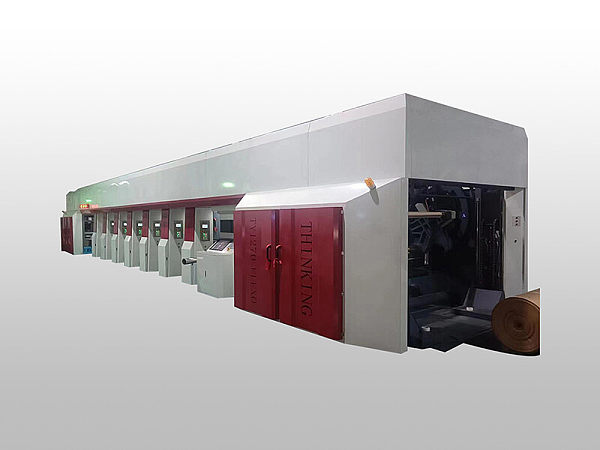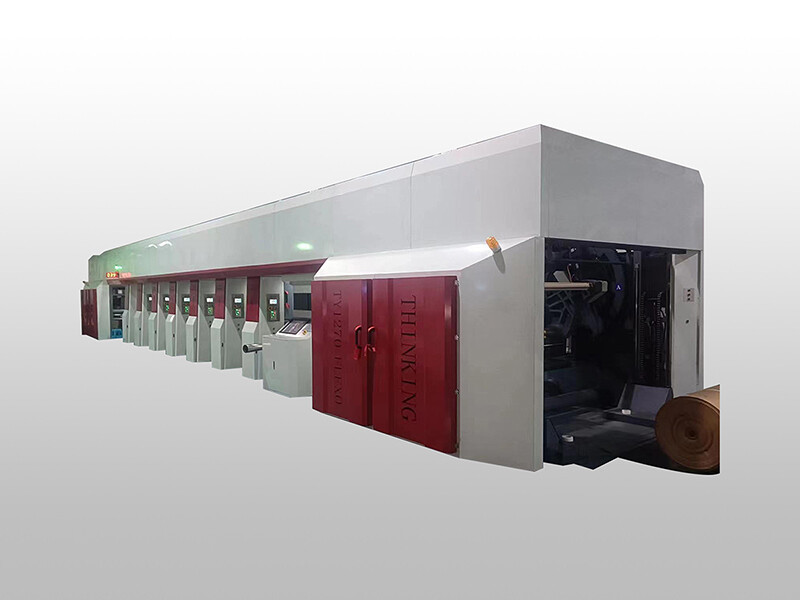How to vet a China milk packet printing machine manufacturer for ROI and uptime every procurement leader should know

Every procurement leader evaluating a Flexo printing machine for dairy production needs a practical checklist to secure uptime and maximize ROI. This guide focuses on vetting a Milk packet printing machine and choosing the right milk packet printing machine supplier — especially when sourcing from a China milk packet printing machine manufacturer. Learn which performance KPIs, maintenance contracts, spare-parts strategies, reference audits and training commitments truly predict long-term reliability and total cost of ownership so technical evaluators, operators and commercial decision-makers can approve purchases with confidence.
Procurement teams, plant managers and technical evaluators in packaging printing face the same set of commercial and operational risks when buying a flexographic press for dairy sachets: hidden downtime, incompatible spare parts, inadequate training and unclear warranty terms. For dairy production, where hygiene, continuous throughput and print consistency directly affect product integrity and brand reputation, selecting the right milk packet printing machine — and validating the milk packet printing machine supplier — is as much about risk mitigation as it is about price. This article provides a systematic, operationally focused approach to auditing a China milk packet printing machine manufacturer, assessing a Flexo printing machine on measurable KPIs, and structuring supplier commitments that protect uptime and return on investment.
Performance KPIs and acceptance testing you must require
When evaluating any Flexo printing machine for milk packets, define objective acceptance criteria tied to your production profile. Start with throughput metrics that reflect your SKU mix and pack sizes: net running speed (m/min) with standard substrate, average changeover time between milk packet formats, and effective OEE under continuous runs. A reliable supplier should provide verified test reports from similar dairy customers or demonstrate live runs under your substrate and ink system. During FAT (Factory Acceptance Test) and SAT (Site Acceptance Test), insist on: measurable splices per hour, print repeatability across 1000+ meters, and color accuracy using Delta E targets. For milk packet printing machines where lamination, barrier coatings and solvent-based inks are common, also require adhesion and migration test results relevant to food safety standards used in your market.
Quality control features are equally important: in-line register correction, automatic web-tension control, integrated inspection systems and servo-driven stations that reduce mechanical adjustments. Validate the response time of register correction under speed ramping and document the allowable register deviation in microns. For dairy lines where hygiene-related washdowns occur, confirm IP ratings for electrical cabinets and easy-clean design of web paths to reduce microbial harbourage. Operators should validate ergonomics during FAT: accessibility for cylinder changes, ink drainage design and quick-release mechanisms for cylinders and doctor blades will affect average downtime during interventions.
Request a performance guarantee clause in the contract that ties payment milestones to measurable KPIs: acceptance speed, print quality metrics and uptime percentage after commissioning. A sample contract clause could link final payment to achieving a minimum 92–95% uptime over the first 90 days of production. Including such remedies creates financial alignment between buyer and the milk packet printing machine supplier and forces the China milk packet printing machine manufacturer to commit to realistic commissioning support, spare parts provisioning and training plans that ensure sustained ROI.
Maintenance strategy, spare-parts readiness and service level terms
Uptime in packaging printing is driven by preventive maintenance discipline and fast access to critical spares. Before awarding a purchase order, map all single points of failure on the Flexo printing machine: bearings on main drive, servo controllers, tension rollers, print sleeves and ink pumps. Benchmark the expected Mean Time To Repair (MTTR) for each component under typical operator skill sets in your plant. A competent milk packet printing machine supplier will provide a maintenance matrix that includes recommended SPM (scheduled preventive maintenance) intervals, required lubrication schedules and parts with their expected life cycles. For a China milk packet printing machine manufacturer, evaluate their spare parts logistics: do they hold safety stock either locally or through a regional distributor? Can parts be air-shipped within 48–72 hours, and are critical consumables available through local agents?
Service level agreements (SLAs) must be explicit. SLAs should define response times for remote support and on-site technician deployment, time-to-repair commitments for priority faults, and escalation paths with named contacts. For dairy operations, where a packaging line stoppage can disrupt filling and cause product loss, contractually require guaranteed initial response within 4 hours for critical failures and a committed on-site arrival window based on geographic reality. Additionally, include provisions for spare-parts consignment or vendor-managed inventory for high-risk components to minimize downtime. Evaluate the supplier’s spare-parts pricing model and lead times — total cost of ownership depends as much on parts availability and price as it does on machine acquisition cost.
Preventive support should also cover remote diagnostics and predictive analytics where available. Many modern Flexo printing machine platforms for milk packet printing machine applications include PLC and IIoT capabilities; ensure the supplier can integrate relevant telemetry into your MES or SCADA systems while providing baseline analytics dashboards that help identify trends before failures occur. For procurement teams, the presence of a transparent maintenance strategy, spare parts plan and measurable SLA greatly reduces operational risk and improves ROI projections by limiting costly unplanned downtime.
Factory audits, references and compliance checks for China suppliers
A thorough factory audit of the China milk packet printing machine manufacturer reveals manufacturing discipline, quality control and after-sales capability. Create an audit checklist that covers production process flow, quality inspection stations, assembly jigs and test benches used for Flexo printing machines. Verify whether the manufacturer runs full FATs on every machine or relies on spot checks. Inspect documentation practices: traceability of critical components, calibration records for measuring equipment and final test reports for electrical safety and functional verification. For dairy packaging, also validate that the supplier understands food-contact regulations applicable to your market and can provide material declarations for rollers, doctor blades and substrates that interface with the product packaging environment.
References are essential. Request to visit at least two existing customers with comparable production volume and paper/film substrates; where on-site visits are not feasible, require virtual audits with live demonstrations of machines in production. During reference checks ask about actual uptime over 12 months, typical spare-parts lead times, quality of training delivered and real examples of how the supplier handled major breakdowns. Probe commercial stability and warranty performance — did the China milk packet printing machine manufacturer honor warranty commitments and meet SLA terms? Are additional retrofit or continuous improvement services available post-delivery?
Also review organizational capability beyond manufacturing: is there a dedicated international service team, do they maintain spare-parts hubs in key regions, and what is the language proficiency for remote troubleshooting? Confirm certifications relevant to machinery safety and quality management that align with your procurement policy. A supplier that demonstrates structured quality assurance and a history of supporting Flexo printing machine installations for dairy applications will materially reduce vendor risk and provide stronger justification for approval by procurement committees and plant leadership.
Training, documentation and financial modeling for real ROI
Operational readiness determines whether a new milk packet printing machine delivers promised returns. Insist on a comprehensive training program that covers operator routines, first-line maintenance, mechanical adjustments and PLC/HMI troubleshooting. Training should be staged: classroom theory at commissioning, hands-on shadowing during initial production runs, and follow-up refresher sessions at 30 and 90 days. Verify that training materials are provided in your language and include detailed maintenance manuals, exploded drawings for wear parts and annotated troubleshooting flowcharts. For a milk packet printing machine supplier from China, ensure translated documentation is technically accurate and that local trainers or certified partners are available to provide ongoing training.
From a commercial perspective, model total cost of ownership with realistic assumptions: upfront capital, installation and commissioning costs, spare parts consumption based on manufacturer life estimates, expected labour for maintenance, and predicted downtime costs per hour for your dairy line. Run sensitivity analyses to show how improved uptime from better training, proactive parts consignment or remote monitoring impacts payback period. Including service credits, performance guarantees and spare-parts consignment in contracts can materially shorten payback and reduce financial risk. Require the milk packet printing machine supplier to provide a sample TCO model populated with their machine’s real-world MTBF and MTTR figures from reference sites.
Finally, structure acceptance payments against milestones linked to training completion, SAT performance and verified uptime. This aligns incentives and ensures the China milk packet printing machine manufacturer remains invested in successful ramp-up. When procurement leaders combine rigorous KPI acceptance testing, robust maintenance and parts strategies, verified factory audits and an explicit training and financial model, the procurement decision becomes defensible, operational risk diminishes and ROI becomes measurable.
Conclusion and next steps
Selecting the right Flexo printing machine and milk packet printing machine supplier is a cross-functional exercise. By insisting on quantified performance KPIs during FAT/SAT, demanding concrete spare-parts and SLA commitments, performing focused factory audits of the China milk packet printing machine manufacturer, and securing structured training and TCO analysis, procurement and technical teams can reduce downtime and protect ROI. Our packaging printing expertise spans flexographic presses, die-cutting and paper bag printing equipment; we support buyers with on-site validation, FAT oversight and tailored maintenance contracts that ensure predictable performance.
To discuss a tailored vetting checklist, request supplier audit templates, or arrange a FAT for a Flexo printing machine, contact our team today. Learn more about how a robust procurement process and the right milk packet printing machine supplier selection can safeguard your dairy packaging line and maximize lifetime value.to schedule a technical assessment or to receive a sample TCO model and maintenance SLA template.
Contact Us Today to Get a Quote
WhatsApp:+8613863655370
Tel:+8613863655370
E-mail:Chris@bochuanpack.com


